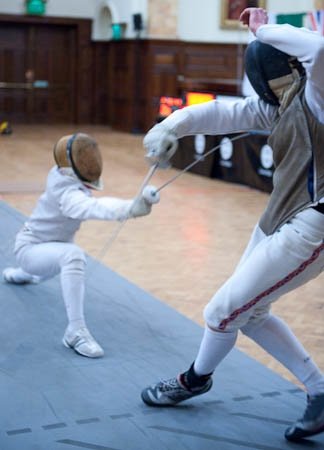Me: “yeah”
Anyone: “you mean you’re a fencer, with swords and stuff?” (followed by a jiggling of the arm in a strange pointy motion)
Me: “yeah”
This is a conversation I’ve had hundreds of times in my life, quite often with the odd joke about fencing goods, or building a garden fence thrown in for good measure.
I am, as the above fictional but all too familiar conversation suggests, a fencer. I have been since the age of about 10, and seventeen years later, having represented Britain at cadet and junior levels internationally, won a few age-group Scottish and British titles, a senior national bronze and a Commonwealth Team Fencing bronze medal, I’ve been lucky enough to have been thought of as quite good.
When I was asked to write this blog, I thought long and hard about how I could potentially link it back to communications in general. What, if any, connection is there between a sport like fencing, one of the oldest Olympic disciplines, and PR, one of the oldest professions*?
It turns out ‘change’ is a common strand.

Scott in the final of the Birmingham Open
Since taking up fencing, I’ve seen huge efforts by the sport to re-invent itself. From introducing see-through masks and wireless electronics, to providing video replay and efforts to simplify how hits are scored. All of these were designed to keep the sport relevant and to make it more spectator friendly. Some failed, such as see-through masks, and some succeeded, like video replay, but all have been an attempt to make it appeal to new audiences.
The PR industry has had to engage in similar efforts in order to stay relevant. With the rise and rise of digital, the increasing need for integrated services across lobbying, PR and reputation management, and long-running debates around measuring value, agencies have had to find innovative ways to mark them out from the crowd and win business. That’s before even touching on the debate around lobbying and how to legislate it.
What’s interesting is that both sport and an industry like PR rely almost totally on the ability of people to make them successful. Without the creativity, imagination, technique (yes, there is technique in PR) and work ethic, undertakings in either venture are doomed to failure.
Here at PLMR, we’ve assembled a team of people who have all the skills necessary to meet the future challenges of the industry and the needs of our clients.
Whether they can fence remains unclear.
* This may be a stretch for some, but I think you can grant me some poetic licence for being able to link the two at all.




